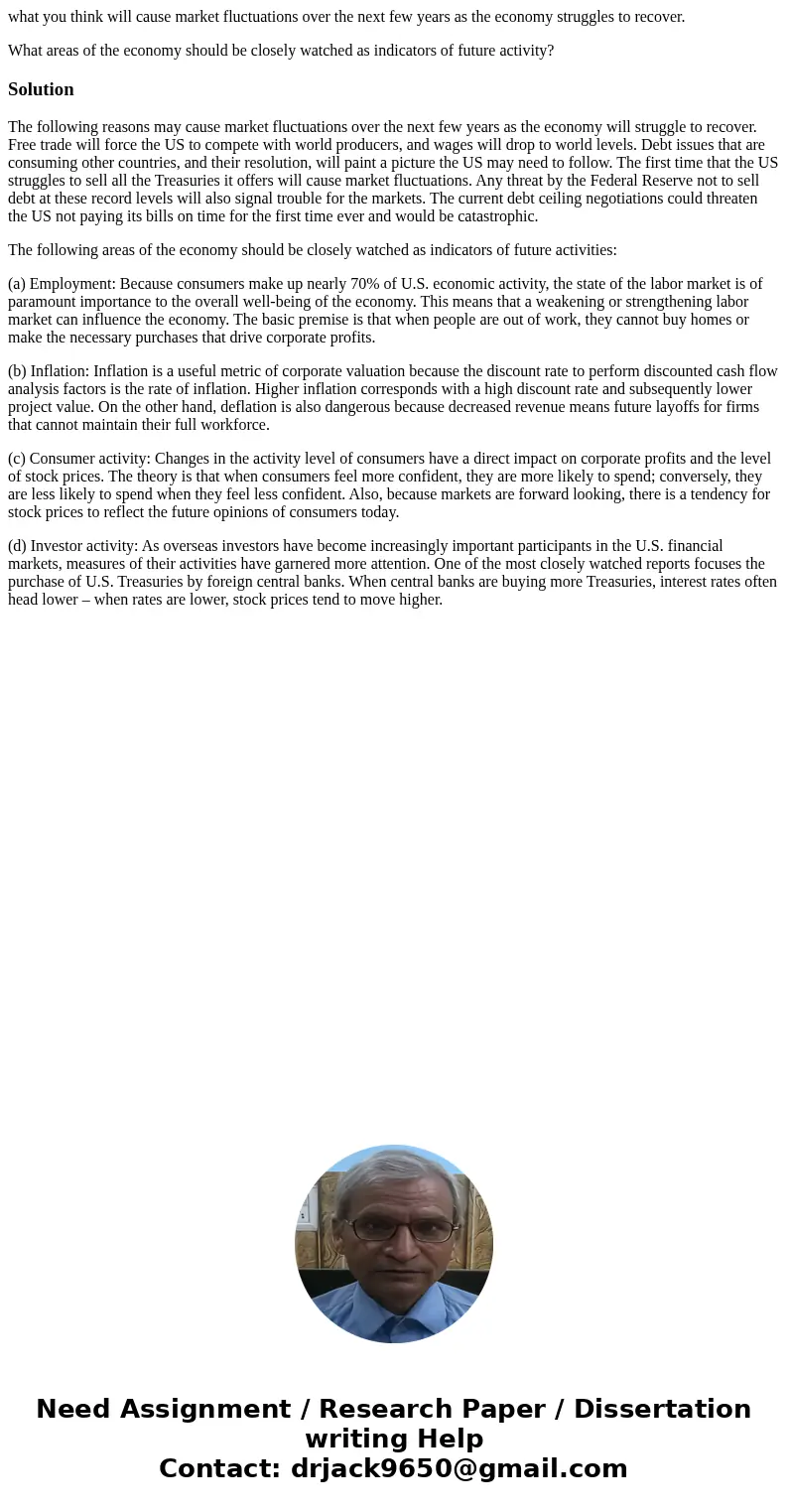what you think will cause market fluctuations over the next
what you think will cause market fluctuations over the next few years as the economy struggles to recover.
What areas of the economy should be closely watched as indicators of future activity?
Solution
The following reasons may cause market fluctuations over the next few years as the economy will struggle to recover. Free trade will force the US to compete with world producers, and wages will drop to world levels. Debt issues that are consuming other countries, and their resolution, will paint a picture the US may need to follow. The first time that the US struggles to sell all the Treasuries it offers will cause market fluctuations. Any threat by the Federal Reserve not to sell debt at these record levels will also signal trouble for the markets. The current debt ceiling negotiations could threaten the US not paying its bills on time for the first time ever and would be catastrophic.
The following areas of the economy should be closely watched as indicators of future activities:
(a) Employment: Because consumers make up nearly 70% of U.S. economic activity, the state of the labor market is of paramount importance to the overall well-being of the economy. This means that a weakening or strengthening labor market can influence the economy. The basic premise is that when people are out of work, they cannot buy homes or make the necessary purchases that drive corporate profits.
(b) Inflation: Inflation is a useful metric of corporate valuation because the discount rate to perform discounted cash flow analysis factors is the rate of inflation. Higher inflation corresponds with a high discount rate and subsequently lower project value. On the other hand, deflation is also dangerous because decreased revenue means future layoffs for firms that cannot maintain their full workforce.
(c) Consumer activity: Changes in the activity level of consumers have a direct impact on corporate profits and the level of stock prices. The theory is that when consumers feel more confident, they are more likely to spend; conversely, they are less likely to spend when they feel less confident. Also, because markets are forward looking, there is a tendency for stock prices to reflect the future opinions of consumers today.
(d) Investor activity: As overseas investors have become increasingly important participants in the U.S. financial markets, measures of their activities have garnered more attention. One of the most closely watched reports focuses the purchase of U.S. Treasuries by foreign central banks. When central banks are buying more Treasuries, interest rates often head lower – when rates are lower, stock prices tend to move higher.

 Homework Sourse
Homework Sourse